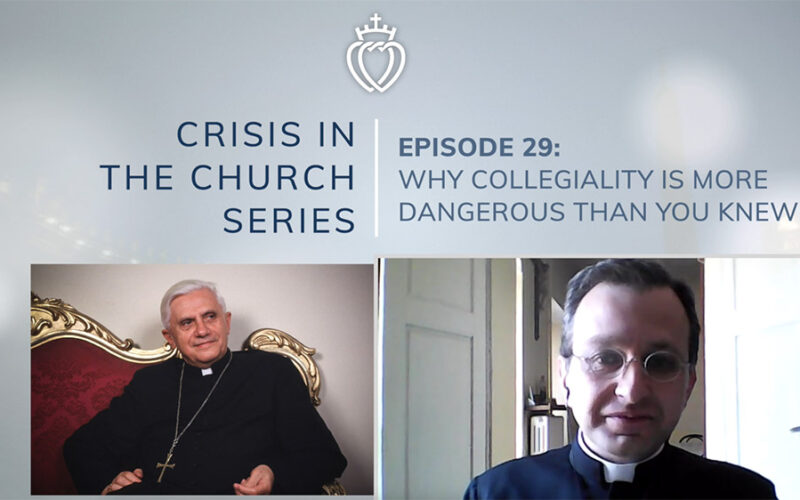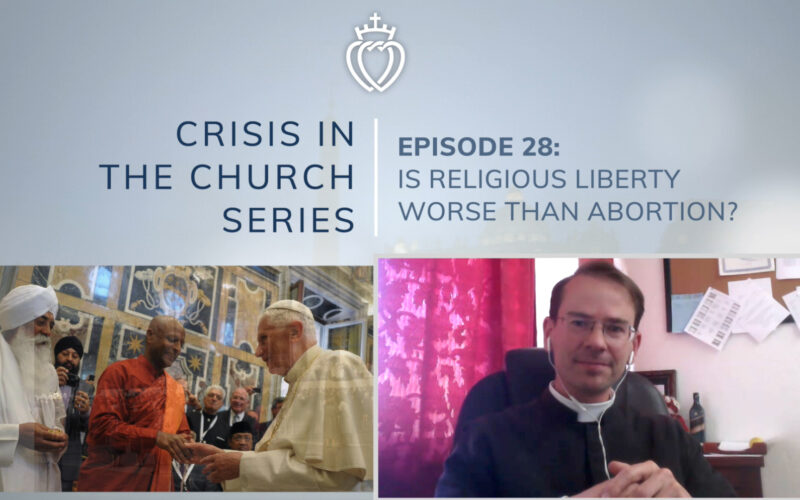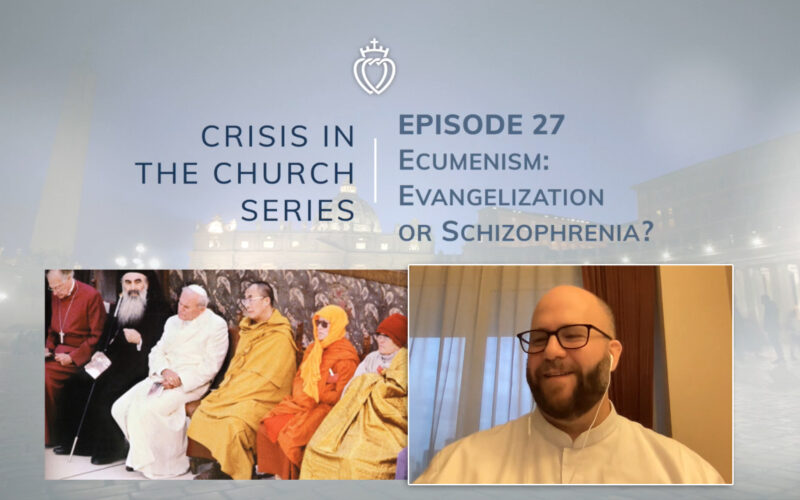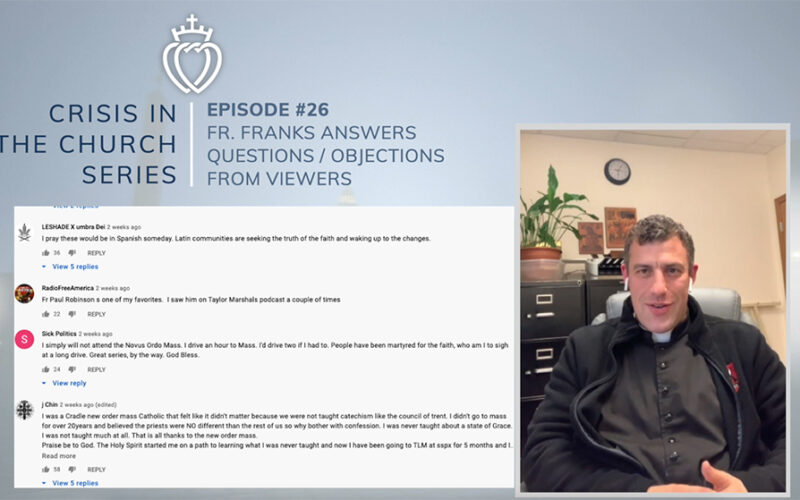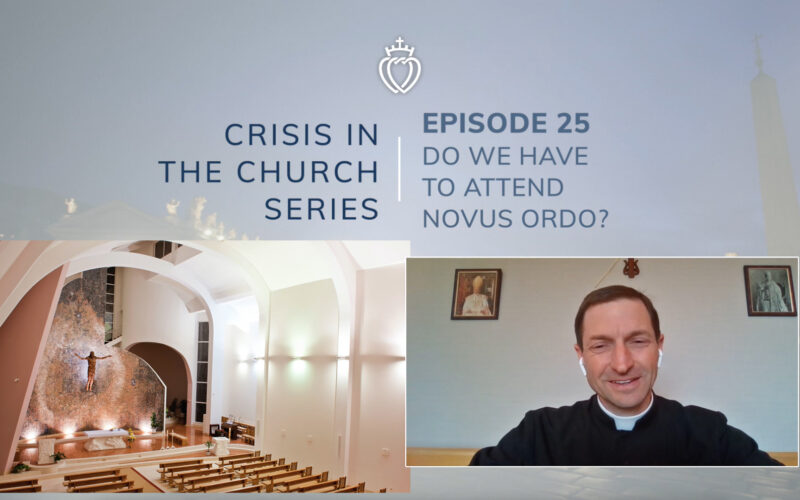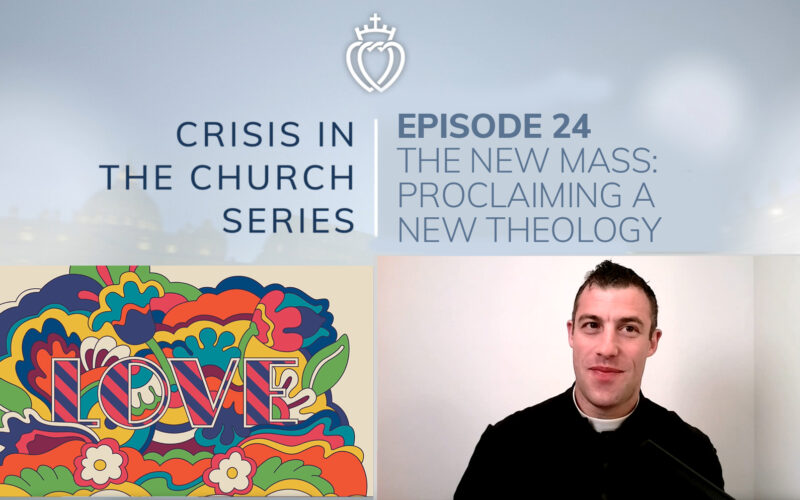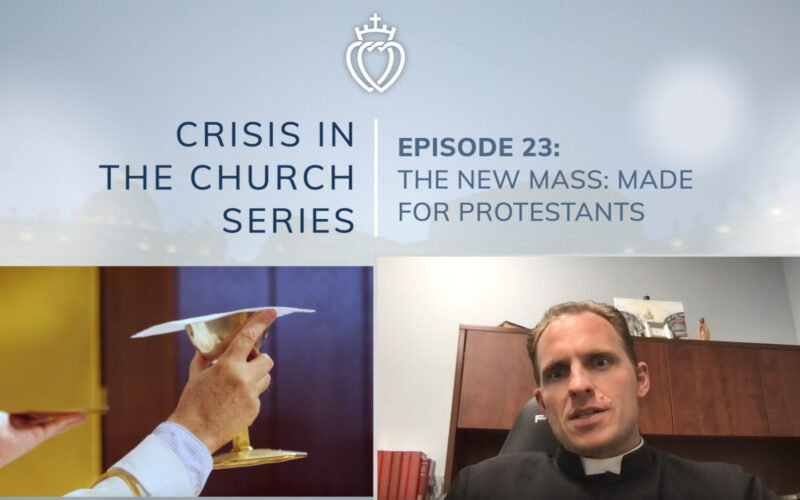Crisis Series #29 w/ Don Tranquillo: Collegiality – More Dangerous Than You Knew
We’re pleased to welcome Don Mauro Tranquillo to discuss one of the least well known, but arguably, most vital of the errors to come from the Second Vatican Council, Collegiality. Collegiality, as Father will discuss, is not just about democratizing the Church, but would completely upend the doctrine of the Church regarding Bishops, and by it, do great danger to both the Episcopacy and the Papacy.
Read MorePodcast: Play in new window | Download

